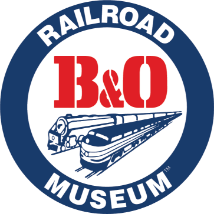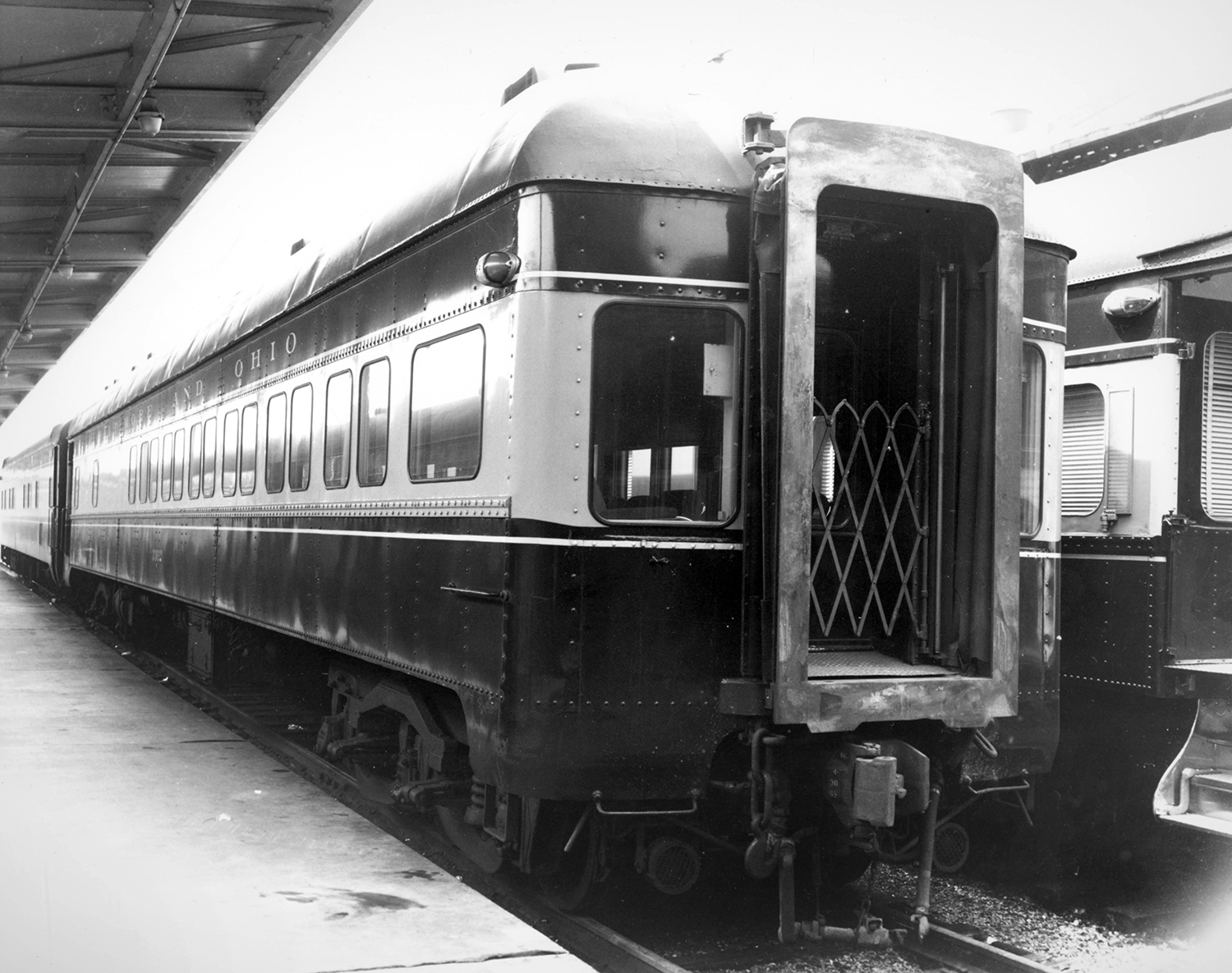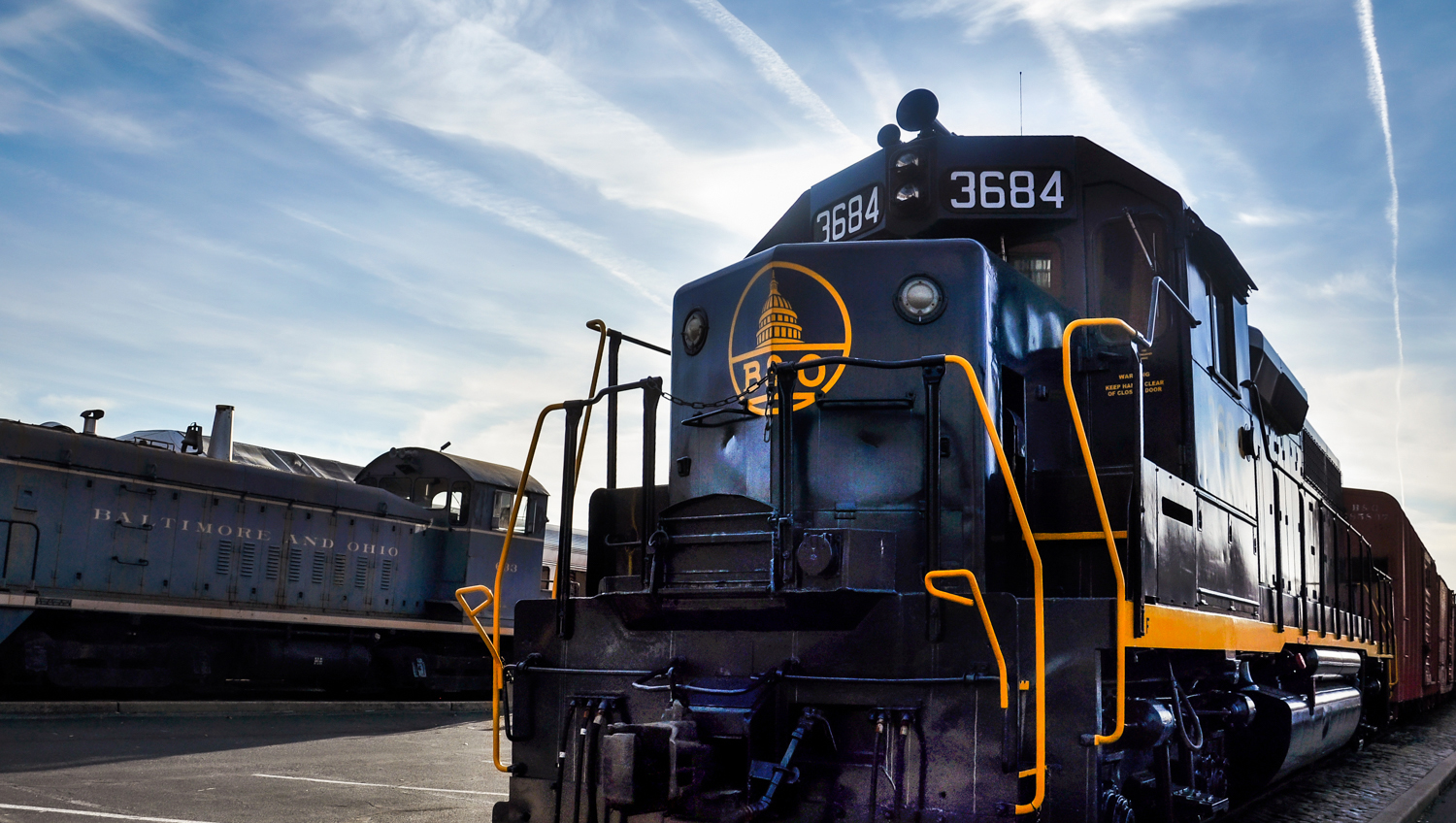Quick Facts
| Name | “Edward G. Hooper” Observation Lounge |
|---|---|
| Manufacture Date | 1923 |
| Railroad Of Record | Baltimore & Ohio Railroad; Railroad Passenger Cars, Inc. |
| Manufacturer | Pullman Company |
| Rolling Stock Type | Observation/Lounge Car |
Description
Virtual Tour:
About the B&O No. 3302 “Edward G. Hooper” Observation Lounge:
Built by the Pullman Company in 1923, the B&O No. 3302 “Edward G. Hooper” began its life as a standard “heavyweight” passenger car. At the dawn of the 20th century, most railroads were replacing their wooden passenger cars with coaches made of carbon-steel. These new “heavyweight” cars were more durable and less flammable than their wooden predecessors, making them considerably safer.
Originally numbered as No. 5234, this car was initially used to service the B&O’s premier passenger trains. For nearly 2 decades, the heavyweight coach carried passengers between Washington and New York with the Royal Blue. It also traveled between Baltimore and Detroit with the Ambassador.
In 1941, the No. 5234 was converted into a flat-end observation lounge and renumbered as B&O No. 3302. It was renovated to include the latest comforts technologies, including adjustable seats, air conditioning, walkthrough vestibules, and improved ventilation systems. New wheels were installed to ensure a smooth ride, and a small snack bar was made to satiate hungry passengers. Unlike other observation cars, the No. 3302 could be used for mid-train services thanks to its rear-facing diaphragm.
Following its upgrade, the No. 3302 was put to work on the Columbian train connecting Washington and Chicago. It did not stay in first-class service for much longer. By the mid-to-late-1900s, heavyweight passenger cars were largely replaced by “lightweight” coaches made of stainless steel, aluminum, and weathering steel. In 1949, the B&O purchased new lightweight cars for the Columbian, and the No. 3302 was relegated to secondary passenger lines like the Metropolitan and Shenandoah.
In 1969, the No. 3302 was sold to the Baltimore Chapter of the National Railway Historical Society (NRHS). The Society gave the car a fresh coat of blue and grey paint, and they renamed the coach “Edward G. Hooper.” Before serving as Chairman of the Board of the NRHS, Edward G. Hooper was a long-time railroader. He began working as a clerk for the B&O Accounting Department in 1904. By 1941, he had risen through the ranks to become Assistant to the Secretary – a position that he held until his retirement in 1954.
In 1972, the No. 3302 was sold to Railroad Passenger Cars, Inc (RRP), a nonprofit organization founded to preserve and lease pieces of historic passenger equipment. For the next few years, the car was used for private excursions. While working in this capacity, the No. 3302 carried several dignitaries, including governors, mayors, and congressmen.
In 1980, the car was chosen to be part of the Chessie Safety Express. The car was moved to the shops of Huntington, WV and repainted yellow to match the rest of the Chessie fleet. The bar and steward’s rooms were expanded for increased comfort, and the car’s rear diaphragm was also removed. Without this connecting piece, the No. 3302 could no longer be used for mid-train services.
RRP leased the No. 3302 to various railroad companies until the mid-1980s, when it was deemed ineligible for mainline operations. The car’s couplers were dangerously outdated, and RRP did not have the funds to upgrade the car. The “Hooper” was stored in East Baltimore until 1989, when it was leased to the EnterTRAINment Line (EL), a passenger excursion service that operated on the Maryland Midland Railway (MMID).
By the end of 1992, RRP had signed a deal with EL and the MMID to rebuild the “Edward G. Hooper.” An Amtrak-approved coupler was installed in the rear, the diaphragm was modernized, and the wheels were upgraded to meet modern safety standards. The car’s lounge chairs were replaced with standard dining tables. RRP planned to install a head-end-power (HEP) unit as well, but this never came to fruition. Following its renovation, the No. 3302 was used to service EnterTRAINment’s private dinner train.
In 1995, RRP was dissolved, and the “Edward G. Hooper” was sent to the B&O Railroad Museum. Three years later, the car’s lounge chairs were reinstalled and reupholstered. For a time, the museum used the car on the BOMX. On several occasions, it was leased to Camden Station and used as a stationary snack car. The No. 3302 is now on permanent display at the museum, where it is heralded as the last surviving paired-window “heavyweight” observation car to be operated by the B&O Railroad.
According to legend, the ghost of a dead brakeman has haunted the car since the 1930s. Witnesses have reported chair that recline on their own, window shades that randomly move up and down, and holiday decorations that seem to be disturbed by an unseen hand.
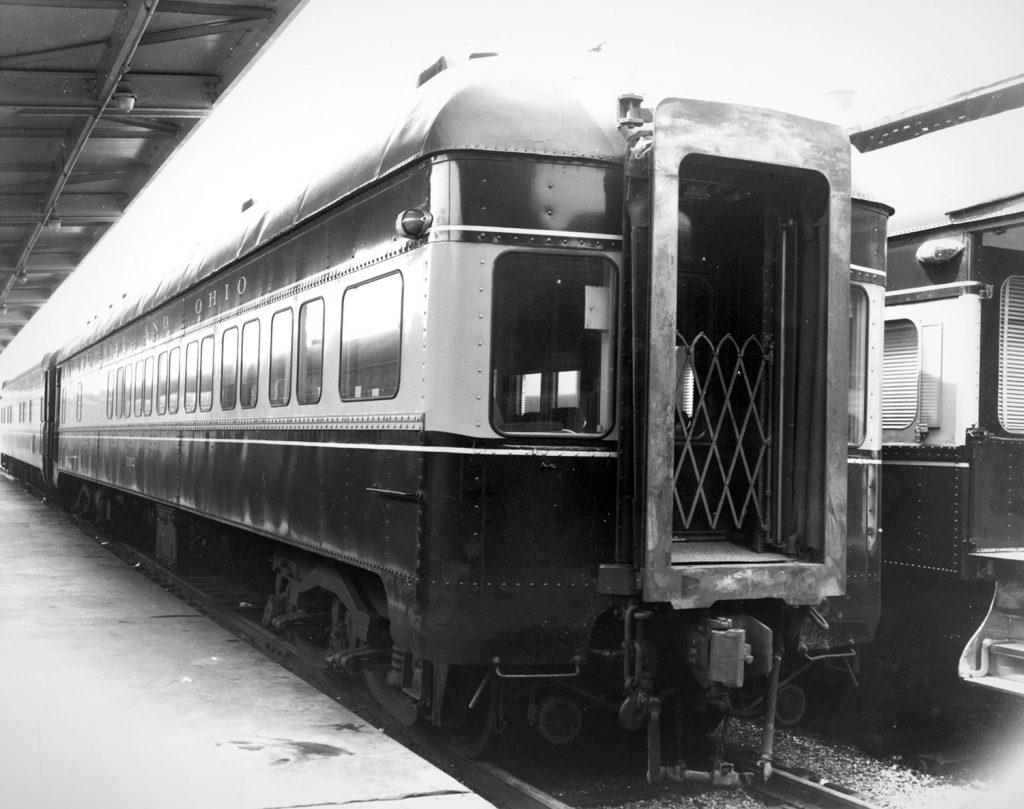
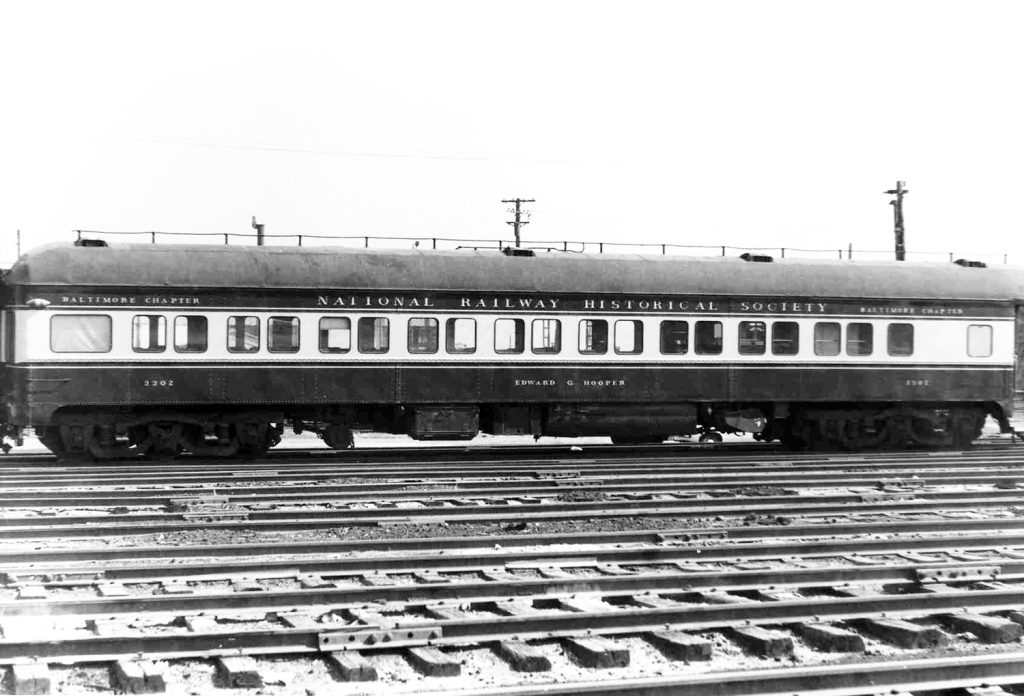
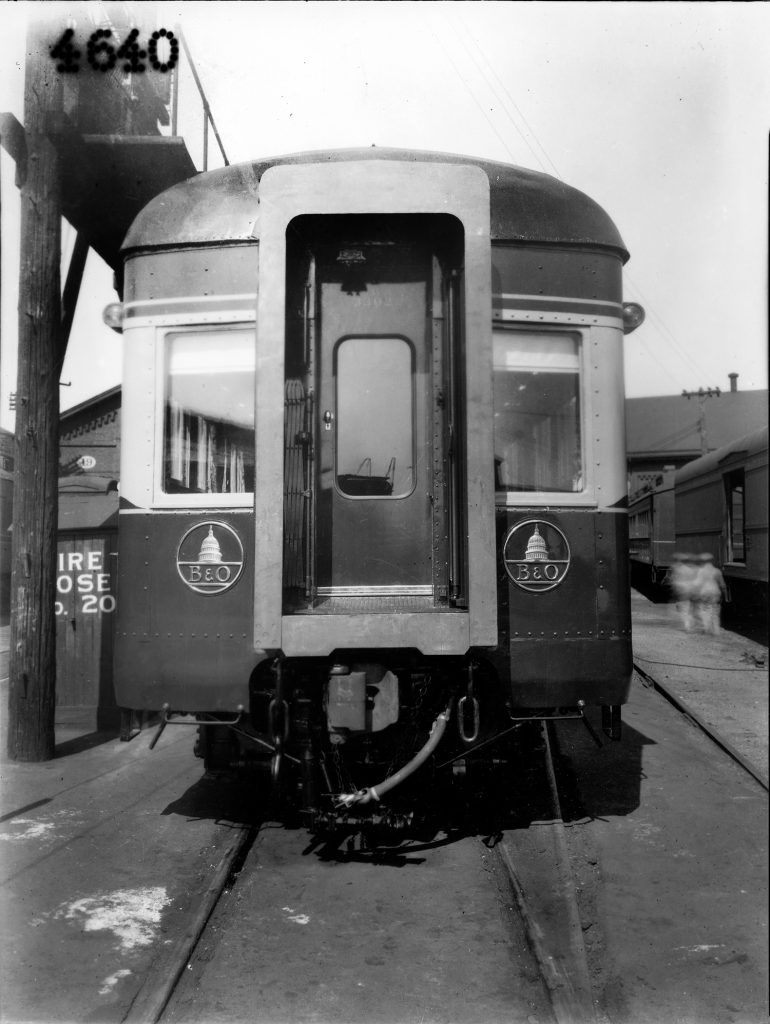
Can't Get Enough?
There’s even more to explore. Check out this and other unique pieces from our collection.
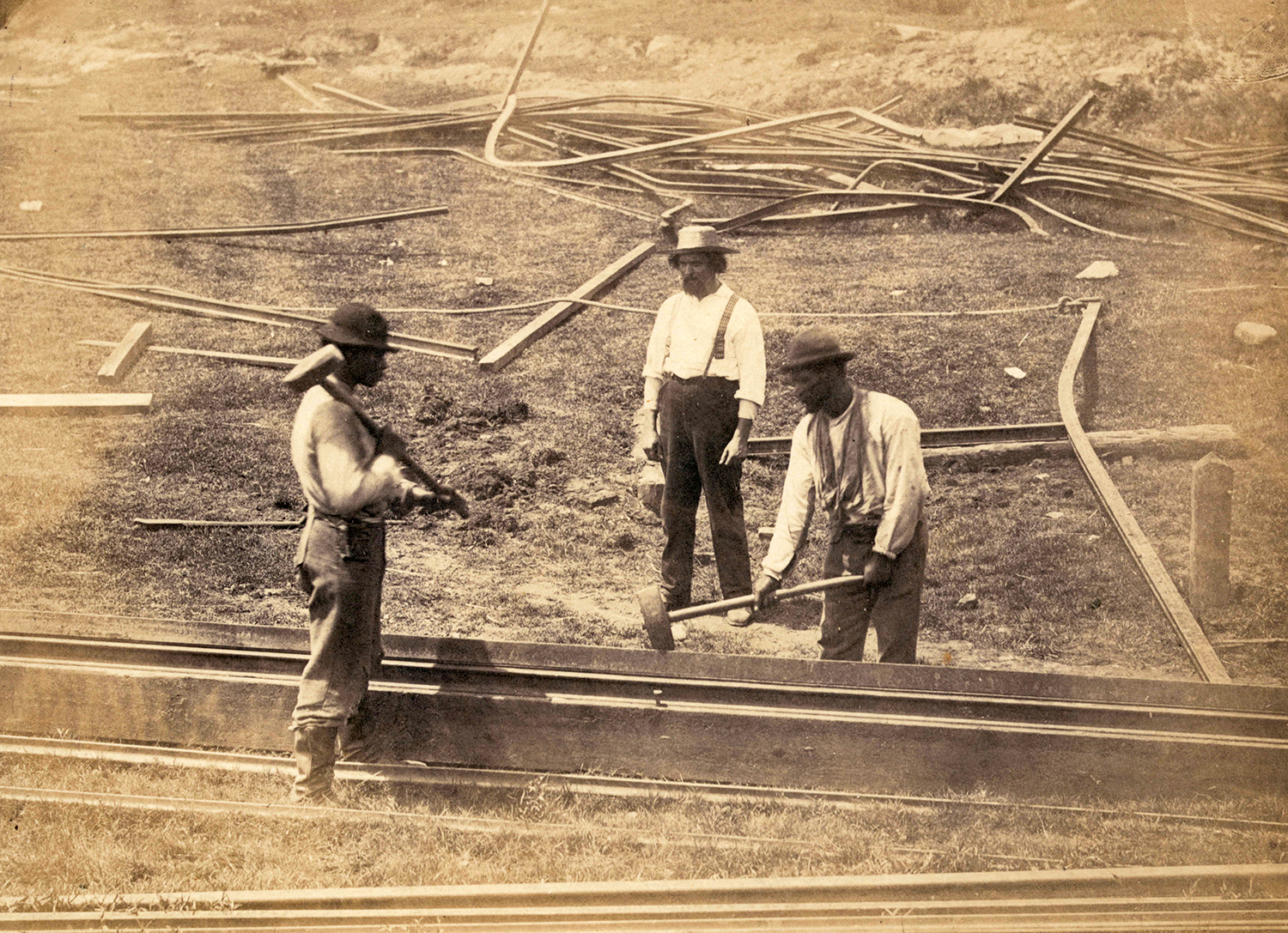
Did You Know?
The United States Military Railroad was the first US government agency to hire African Americans.
